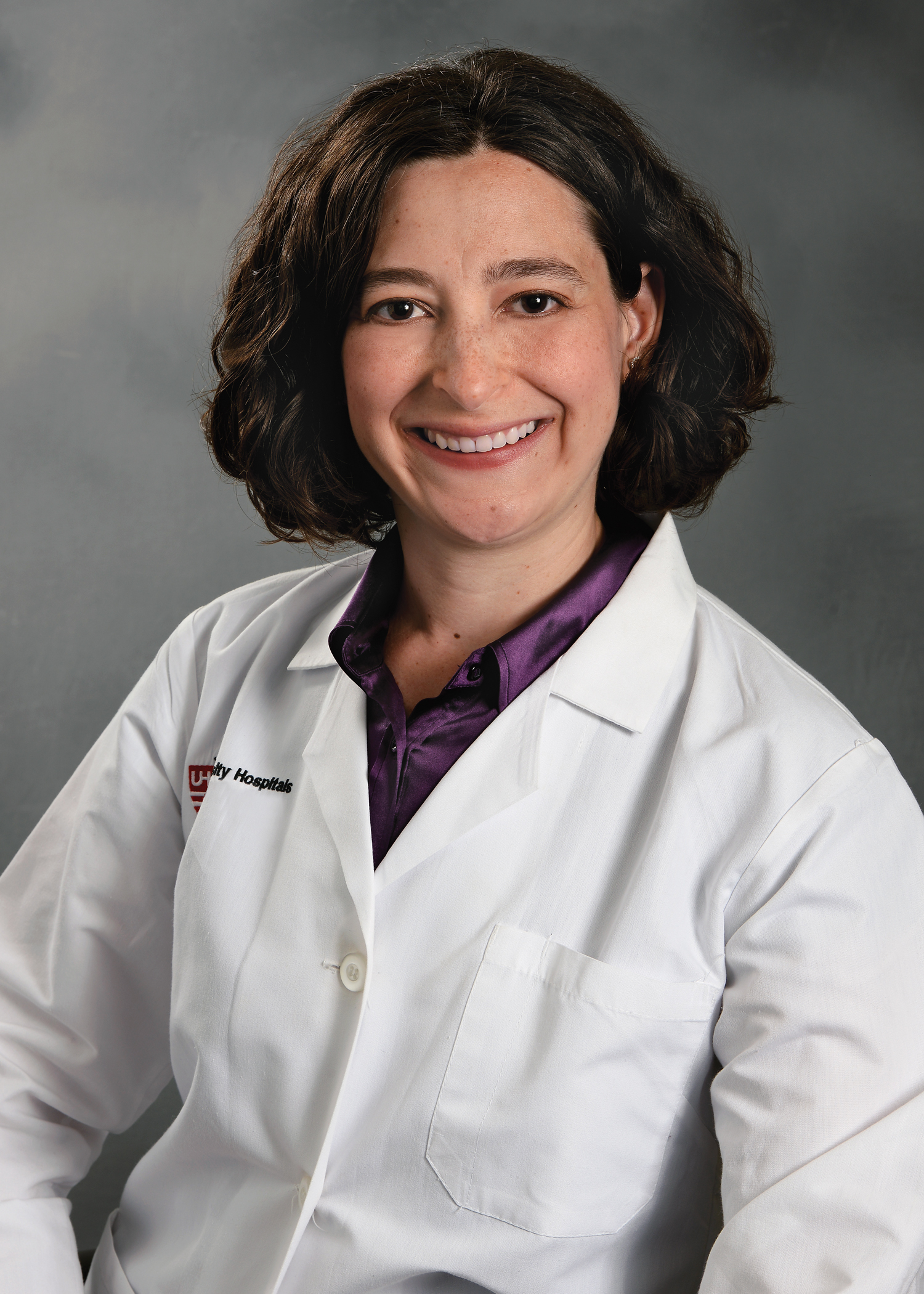University Hospitals Is Personalizing Infertility Treatment to Meet Patients’ Religious Needs
July 11, 2023
Innovations in Obstetrics & Gynecology | Summer 2023
The first baby conceived via in vitro fertilization (IVF) was born in 1978, and many ethical and religious concerns arose in the wake of this leap forward in medicine. Today, many of these concerns persist in the diverse patient population that seeks infertility treatment.
 Rachel Weinerman, MD
Rachel Weinerman, MDRachel Weinerman, MD, Division of Reproductive Endocrinology and Infertility, University Hospitals Fertility Center, describes the importance of understanding patients’ religious needs and how her team is striving to accommodate each unique patient who walks through the doors of UH Fertility Center.
Understanding Patients’ Needs
Patients seeking infertility treatment come from a wide range of religious backgrounds, each with their own views and concerns relating to IVF and other treatments.
“Catholic and some Christian patients may have concerns about IVF not being a natural way to conceive, and they may also have concerns about having excess embryos frozen, as they consider those embryos to have the dignity of human life,” Dr. Weinerman says as an example.
Two years ago, Dr. Weinerman presented a roundtable on patients’ religious beliefs and IVF at the American Society for Reproductive Medicine (ASRM) conference. “The feedback that I got was phenomenal. People were very hungry for this type of information” she says..
Last year, she had the opportunity to expand that roundtable into an ASRM webinar to educate physicians on the ways different religions prevalent in the U.S. view eggs, sperm, embryos and other aspects of infertility treatment. Resources like this webinar help infertility specialists understand their patients’ personal beliefs, which impact the way they want to receive treatment.
Dr. Weinerman also recommends leveraging local resources. “Reach out to local religious leaders to form relationships that you can turn to if you have questions that arise during patient care,” she says.
Creating a Safe Space
Dr. Weinerman thinks about potential religious concerns during the first conversation she has with a couple. She asks broad questions: Would you ever consider IVF? Do you have concerns about IVF?
“It creates the opportunity for patients to share concerns with you from whatever perspective they're coming from,” she says. “You have to create a safe space for patients to feel that their needs are going to be addressed.”
Once she and her patients begin creating a treatment plan, any concerns that have arisen from that conversation are clearly defined and communicated. “The entire team is aware of the patient's needs, from the doctor to the IVF nurse to the front desk to the IVF lab,” says Dr. Weinerman.
Accommodating Patients at UH
What can fertility specialists do with the knowledge of varying religious views? At UH Fertility Center, Dr. Weinerman and her team are looking for ways to adapt care to meet patient needs once they are voiced. For example, Orthodox Jewish law may require the presence of a trained supervisor to oversee sperm and eggs from the time they are removed from patients’ bodies to the time they are returned in the form of an embryo transfer. UH has partnered with ATime, a nonprofit dedicated to supporting Orthodox Jewish couples experiencing infertility, to provide this supervision in the lab for its Orthodox Jewish patients.
Dr. Weinerman is also pursuing research to better understand how fertility specialists can treat patients with specific religious needs. She co-authored a study exploring the optimal number of oocytes to fertilize for patients who have concerns about the number of embryos created.
“The question that gets asked a lot is, “How many eggs do I need to fertilize in order to ensure a live birth, a successful pregnancy, without having extra embryos?’ That was the question that drove the study,” says Dr. Weinerman.
The study, published in JAMA Network Open, resulted in a model that allows fertility specialists to use a patient’s information, such as age and anti-müllerian hormone (AMH) level, to determine the optimal number of eggs to expose to sperm without creating extra embryos.
More research into patient concerns, such as views on donor gametes, will uncover more ways that fertility specialists can provide IVF in accordance with personal religious beliefs. “I think as the physician, we have a duty to our patients to individualize care,” says Weinerman.
UH has supported Dr. Weinerman’s commitment to accommodating a large, diverse patient population through a variety of new programs. “The emphasis that UH places on treating the patient as an individual with specific needs has been incredibly helpful in implementing this type of care in a larger IVF population,” Dr. Weinerman says.
Email Dr. Weinerman at Rachel.Weinerman@uhhospitals.org to learn more about how UH is making infertility treatment accessible to a diverse patient population, or call 216-342-2383 to connect with the UH Fertility Center staff for patient information and referrals.
Contributing Expert:
Rachel Weinerman, MD
Division of Reproductive Endocrinology and Infertility
University Hospitals Fertility Center
Associate Professor
Case Western Reserve University School of Medicine


